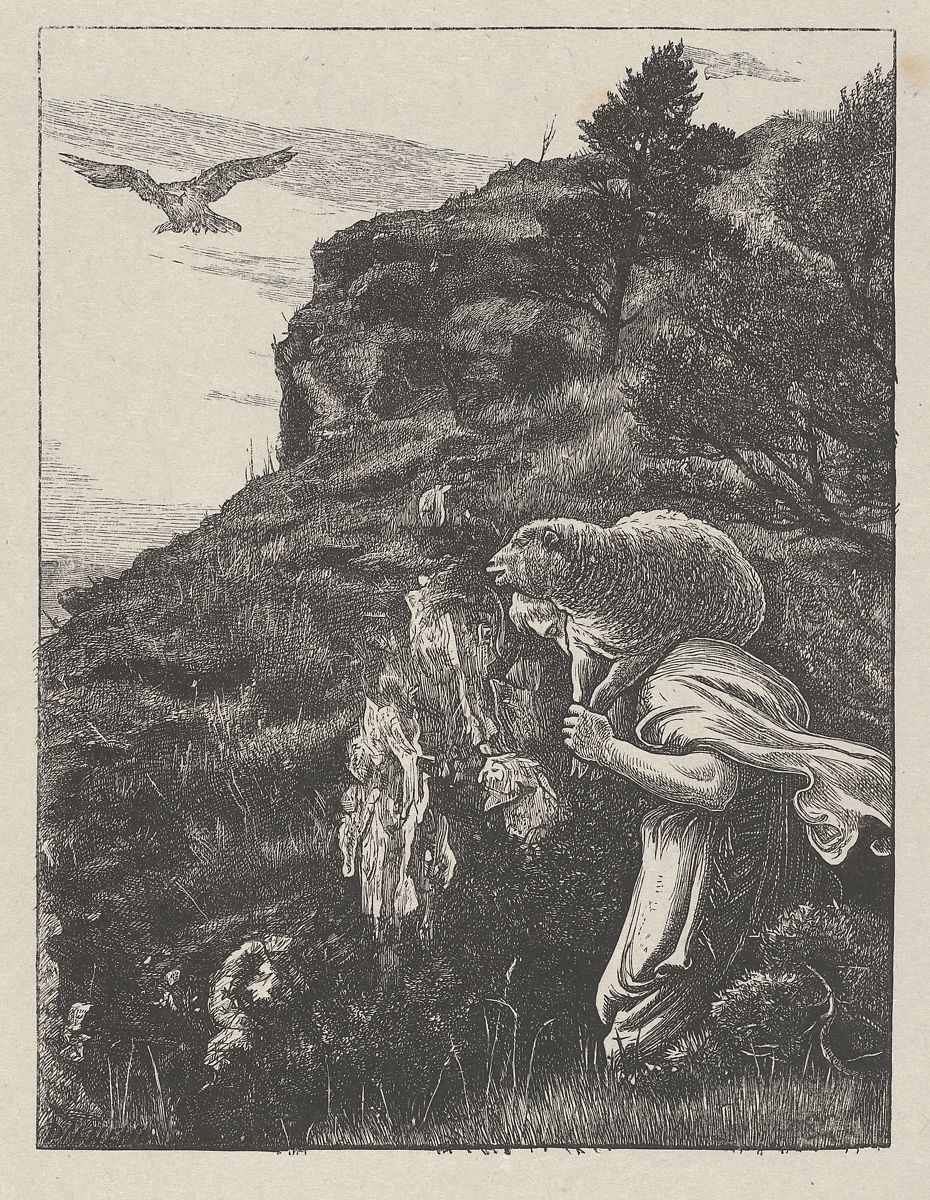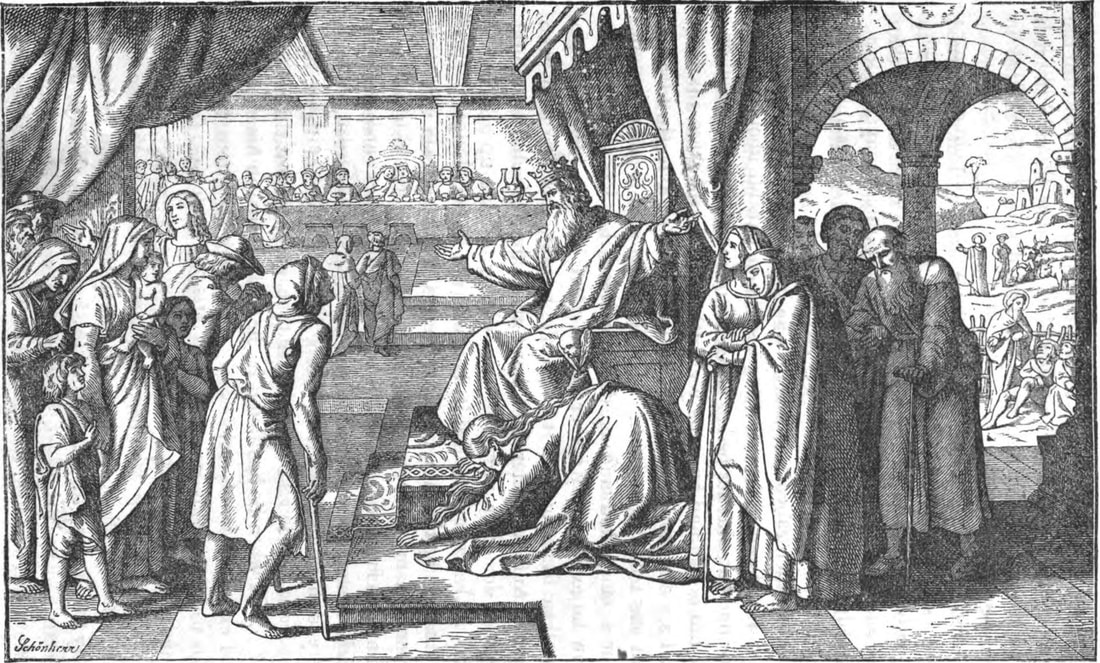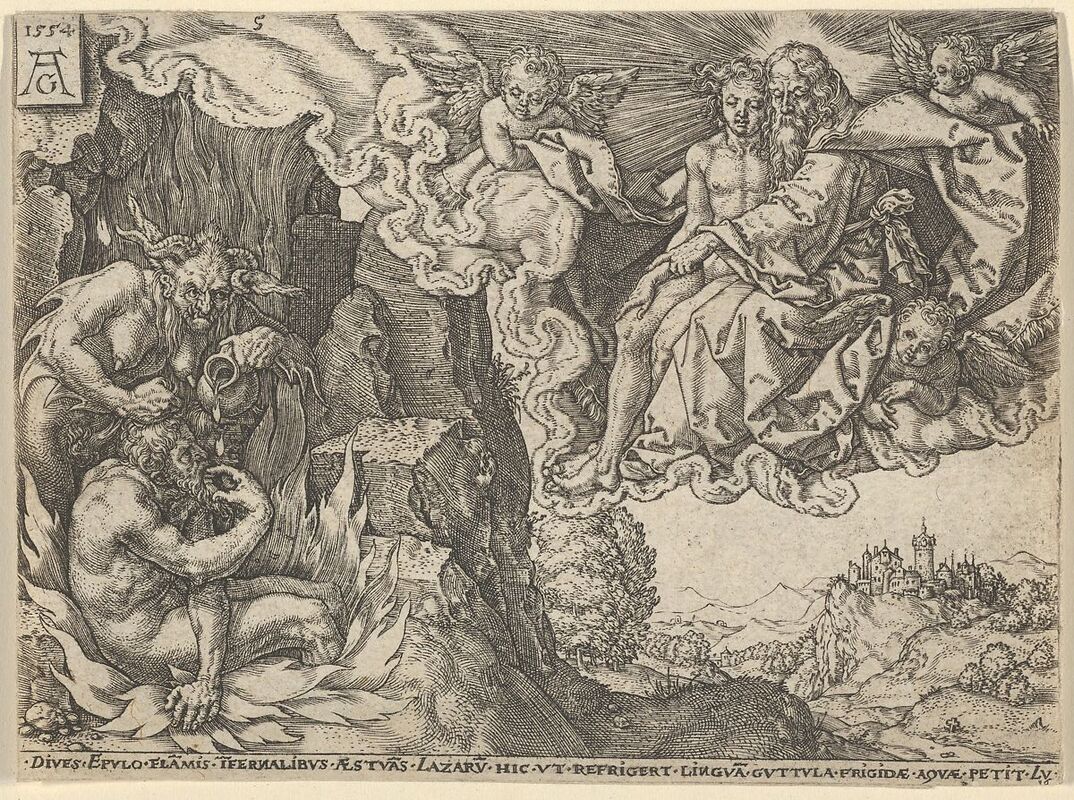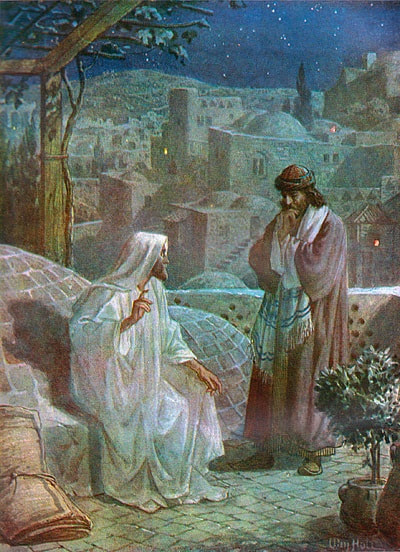Luke 15:1-10
June 28, 2020
The Pharisees grumble against Jesus saying, “This man receives sinners and eats with them.” They mean for this to be an indictment against him, yet, they inadvertently speak the sweetest words of Gospel and describe Jesus as the kindest Lord and dearest friend of sinners. It is as St. Paul says, “whether in pretense or in truth, Christ is proclaimed, and in that I rejoice.” (Philippians 1:18) Jesus receives sinners! No more comforting words have ever been spoken. Indeed, this is the heart of the Gospel! St. Paul writes, “The saying is trustworthy and deserving of full acceptance, that Christ Jesus came into the world to save sinners, of whom I am foremost.” (1 Timothy 1:15) This is why he descended from his throne in heaven and was found in human form. He came into the world for this purpose and this purpose alone: to save sinners.
Yet, these are exclusive words. Jesus came to save sinners and sinners alone. He did not come for anyone else. Earlier in the Gospel of Luke, Jesus is likewise confronted by the Pharisees for eating and drinking with sinners and he responds, “Those who are well have no need of a physician, but those who are sick. I have not come to call the righteous, but sinners to repentance.” (Luke 5:31-32) If you are not a sinner, then Jesus did not come for you. If you want to eat and drink with Jesus, you must be a sinner!
Now, this does not mean that you need to go out and commit heinous crimes or live like a pervert, thief, or vandal in order for Jesus to take notice of you. No, you commit enough sins already even without exerting any special effort. Rather, you must become aware of your sin. Christianity is not about earning your seat at God’s table. Christianity is about recognizing your need for salvation; recognizing that you are a poor, miserable sinner, who deserves nothing from God but temporal and eternal punishment, yet seeing Christ Jesus as your salvation. It is only when you recognize your lost condition that you can see Jesus alone as your hope.
This is why Jesus says that there is more joy in heaven over one sinner who repents than over ninety-nine righteous persons who need no repentance. The angels in heaven, whose sole joy in life is to please God, rejoice with exceeding joy to see sinners become aware of their sin and their need for Jesus. They rejoice to see Jesus’ work bear fruit. The word, “repent.” means to change one’s mind. This is a change from a mind that does not know God, to a mind that knows God; a change from a mind that does not know grace, to a mind that knows God’s grace through Jesus.
The first part of repentance is to realize that you are a sinner and to mourn your sinful condition. The way you realize that you are a sinner is through the preaching of the Law. The Pharisees thought that the Law showed the way to eternal life, but they were wrong. St. Paul writes, “If a law had been given that could give life, then righteousness would indeed be by the law. But Scripture imprisoned everything under sin, so that the promise by faith in Jesus Christ might be given to those who believe.” (Galatians 3:21-22) and again, “For by works of the law no human being will be justified in his sight, since through the law comes knowledge of sin.” (Romans 3:20) The Pharisees tried to justify themselves by their own works of the Law and remained purposefully ignorant of the sin of which the Law accused and condemned them.
These tax-collectors and sinners who gathered around Jesus are aware of their sinful condition. The Law has struck hard and exposed their wounds. They don’t come to Jesus as worthy lords to eat with their equal. No, rather they come as beggars, naked, who know they’re naked; dirty, who know they’re dirty; stinky and aware of their stench; hungry, and aware of their hunger. They know they are dying and they look to Jesus as the only one who can make them live.
The preaching of the Law seems unkind. It’s impolite to point out faults in others or to question their lifestyle. Yet, preaching the law is about as unkind as a doctor telling a patient he has cancer. It is necessary in order to get the necessary treatment! And Jesus is the necessary treatment to all who have the disease of sin. When you hear that you are breaking God’s commands, you should respond with sorrow for your sin. Do not be like the Pharisees and lie to yourself.
Repentance is not complete without faith in Jesus. The Law makes you aware of your sinful condition, but it give you no remedy. Only the Gospel, which reveals to you a gracious God, who sent his Son to die to take away your sins, can save you. Only the Gospel can complete this change of mind from one without hope, to one with certain hope of salvation.
Jesus tells a few stories to explain how this repentance is accomplished. I want to focus on the first two about the lost sheep and the lost coin. In these first two stories, Jesus is the shepherd and the woman. We sinners are the lost sheep and coin. You’ll notice with both of these stories; Jesus doesn’t talk a whole lot about what the sheep or the lost coin does. Rather, it is the shepherd and woman who do all the work. The Shepherd searches the lost sheep and when he finds it, he picks it up and carries it home on his shoulders. The lost sheep is completely helpless. It can’t find its way home. It is vulnerable to every predator from bears and lions to wolves and jackals. I once even saw a report of so-called carnivorous bushes, so named by shepherds, because of how lost sheep would get their wool stuck in the thorns of bramble bushes and would only get more entangled the more they struggled and would often die of thirst in the plant's clutches! Sheep are helpless. Jesus describes only the work of the shepherd to save the sheep; not the sheep to save itself. And the coin is even more pathetic than the sheep! It can do nothing but sit and wait until the woman finds it!
Jesus describes the work of repentance as his work, not the sinners! This conflicts with how we naturally think of it. We think of repentance as something we do to change our hearts. Yet, how can a sinful heart change itself? It cannot. Rather, God must change our hearts.
Just as it is God’s work alone, which sent Jesus to pay for our sins on the cross and rise from the dead, so also it is God’s work alone to turn our unbelieving hearts dead in sin to believing hearts alive in Christ. We look at the preaching of the Gospel as a work of men. But it’s not. Sure, men labor in studying the Word of God and proclaiming it in easy to understand words. That is a lot of work. It is a difficult task. But no human being can bring another to faith. It is God alone, who works through the preaching of the Gospel to create faith. God alone makes alive.
Yet, this does not mean that God works apart from the words of Christians. Faith comes by hearing and hearing from the word of Christ. No one ever came to saving faith apart from hearing the Gospel. Pastors preach the Gospel to their congregations; fathers and mothers teach the good news of Jesus to their children and bring them to church; Christians confess Christ before their friends and neighbors; this is how God creates faith in the hearts of sinners. The woman lit her lamp and swept the house, searching diligently for the lost coin. This is the work Jesus does through his Church to find what belongs to him. The lighting of the lamp and sweeping is the proclamation of the Gospel.
This great effort of the shepherd and woman shows to us how precious we are in Jesus’ sight. We are not worthy of God’s forgiveness, but that does not mean that we are not valuable to Christ. He paid a dear price for us. Knowing the cost, he paid the price to set us free with his bitter pain and death. And knowing every one of your sins, he seeks you with his promise of forgiveness and salvation. Jesus wasn’t ashamed to eat with tax collectors and sinners, cheats and fornicators. He wasn’t ashamed to clothe himself in their sins and wash them away in his own blood. And he is not ashamed to seek out sinners, to forgive them, to tell them that he knows their sins and he has covered them forever.
It might seem that since only one of the one hundred sheep and only one of the ten coins got lost, that this parable is about just a few individuals, but probably not you. Wrong. This parable is about you. You are the lost sheep; the lost coin. One thing that really bothers Christians is the fact that they still sin. You renounce your sin. You confess your love for Christ. You promise yourself and God that you will live a better life, but then you fall. Perhaps it’s a sudden slip into selfish anger or filthy lust; perhaps you’ve strayed away from God’s Word, fell from the faith, and lived as if God does not matter in fornication, greed, or violence. Or perhaps you’ve come to realize that the pretty exterior you’ve built up for yourself is really just whitewash on a tomb, and that nothing really good dwells in you.
This is painful and embarrassing; to call yourself a Christian, yet know that you don’t deserve that title. Yet, God doesn’t call you a Christian, because you deserve it. He calls you a Christian, because he bought you at a great price. You are his. The woman looked for a coin. Coins usually have the image of the head of state. Since our nation is a republic, we have dead presidents and founding fathers. But in nations with monarchs and emperors, it is the king whose likeness imprints every coin. You are God’s coin. His image is imprinted on you. This was done in your Baptism when you put on Christ. This means you belong to God. You are precious to him. He is going to seek you out. And he does this by proclaiming his forgiveness for Christ’s sake.
We gather every week to confess that we are poor, miserable, sinners, who deserve nothing by punishment. And every week Jesus receives us and forgives our sins. Jesus is not ashamed to be found with us. He rejoices that he has found what belongs to him. And the angels in heaven rejoice with him. Amen.




 RSS Feed
RSS Feed